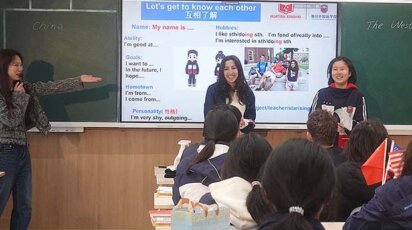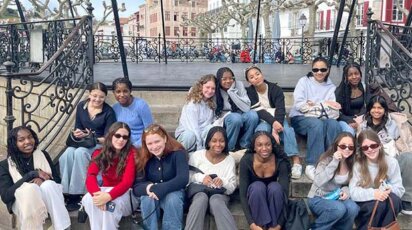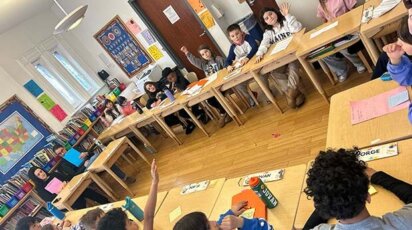News
That African American history is American history is a focus of Poly’s Grade 12 electives, African American History and African American Women’s History, taught by Alex Carter.
Carter taught African American Women’s History in the fall and African American History in the spring last year, and is doing the same this year.
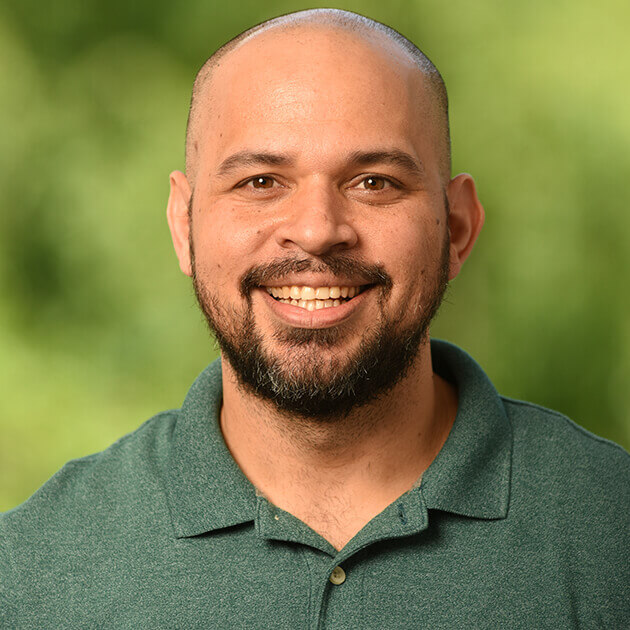
Growing up in Washington, DC, Alex Carter’s love of history began with family, hearing his grandmother’s stories and reading The Washington Post to her, when he was a child. It gave him a perspective on the wider world. Carter was a US Fulbright Fellow, who did research in Australia on aboriginal peoples. He was also inspired by choreographer Carole Johnson, who used dance as a form of expression for political movements.
Poly originally offered a Women’s History course. When he joined Poly in 2018, Carter knew he wanted to “revamp the course to focus exclusively on Black women.” Carter teaches Grades 9 and 11, as well as the Grade 12 electives.
A Curriculum Shift Toward Equity
Together with Michal Hershkovitz P’16, ’18, Assistant Head of School, Academics, and Maggie Moslander, Chair of the History Department, Carter envisioned a class that would rely on his expertise in African American Studies and Women, Gender, and Sexuality Studies. “From there, I spent the summer of 2019 building the course, consulting scholars in the field of Black Women’s History, and selecting the key primary source materials,” he said.
Carter makes it clear what to expect from a course about African American history, “To relegate it to the sidelines of the traditional narrative of American exceptionalism is to do an egregious disservice not only to people of color, who have been marginalized in this narrative but also to every citizen of this country, who should be confronted with uncomfortable truths about their nation’s past and encouraged to think critically about how the ghosts of slavery and Jim Crow segregation continue to haunt us in the present.”
“The course explores books and primary sources written almost exclusively by Black women.”
Under Carter’s leadership, the African American Women’s History course “explores books and primary sources written almost exclusively by Black women. By taking this approach, our students envision Black women historians as writers and thinkers of historical writing. At the same time, by reading primary sources exclusively written by Black people, our students see how Black women’s theory and approaches to race, class, gender, and sexuality are historically relevant, intersectional, and are applied in our contemporary world.” The class uses as its primary course text A Black Women’s History of the United States by Daina Ramey Berry and Kali N. Gross.
“All of the books we read stood out to me because I had never read from the perspective of a Black female historian.”
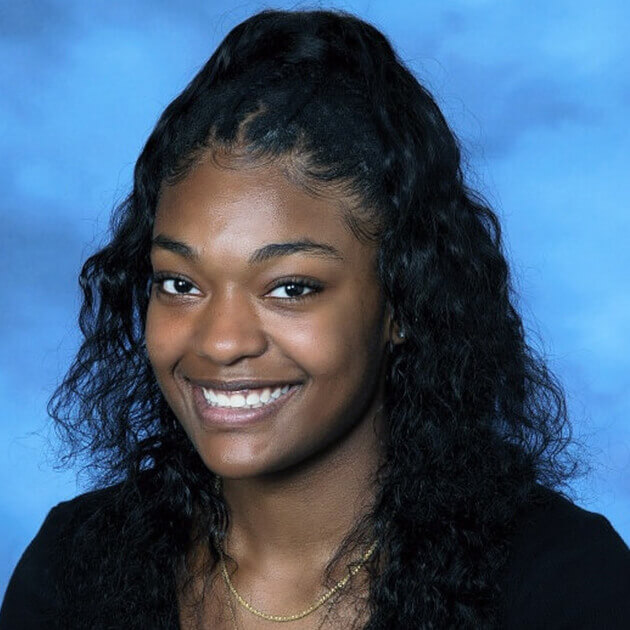
“Even though Poly has a diverse selection of texts,” said Emmalee Burford ’20, who took both African American history courses, “a class dedicated to analyzing the words of Black women was new to me. All of the books we read stood out to me because I had never read from the perspective of a Black female historian. I had also never read a history book where credit was given to Black women for their participation in history. The books we read focused solely on the efforts made by Black women to strengthen movements and I had never been in a class that had all of the readings focused on that.”
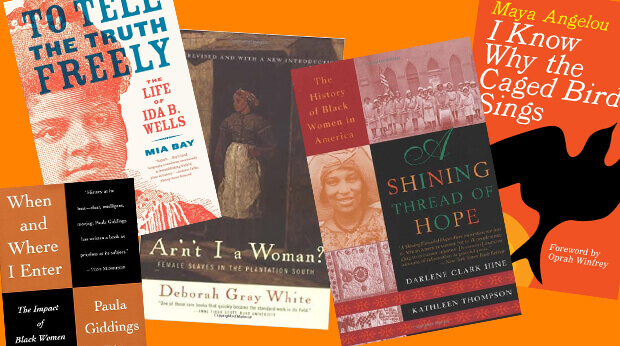
The students read selections from works including: Ar’n’t I a Woman?: Female Slaves in the Plantation South by Deborah Gray White; A Shining Thread of Hope: The History of Black Women in America by Darlene Clark Hine; When and Where I Enter: The Impact of Black Women on Race and Sex in America by Paula Giddings; To Tell the Truth Freely: The Life of Ida B. Wells by Mia Bay; and I Know Why the Caged Bird Sings by Maya Angelou.
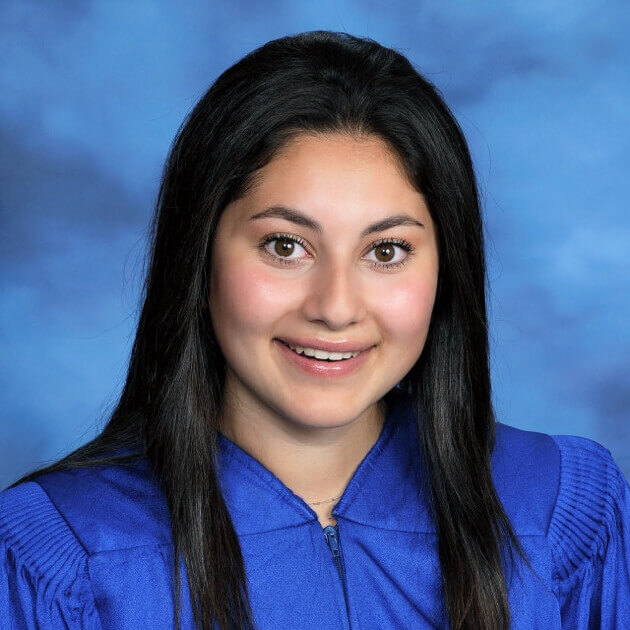
Alexandra Nava- Baltimore ’20 was among the first class to take the new African American Women’s History elective. She said of Carter, “His passion for civil rights, African American Women’s history, and a just world were evident in every discussion. His focus on those that significantly impacted our world, but were often overlooked was honest, and further opened my eyes to those we often don’t acknowledge. Our readings were inspirational and informative, but most of all, honest. Our class was filled with intense and fascinating discussions. Allowing us to gain knowledge from not just historical information, but also the beliefs and ideas of others.”
“Learning specifically about African American women’s history was eye-opening,” continued Nava-Baltimore. “One of the class topics that has stuck with me is the grassroots women’s ideas and organizing tactics. Learning about women who had such massive impacts on many events and movements, but worked behind the scenes showed my class the truth. History and society only know and celebrate a portion of it. Still, women have played such a large role and took on the brunt of the work during slavery and the Civil Rights Movement as they were discriminated against by the color of their skin and their gender.”
She said the class helped her to “understand the revolutionary movements in history and how our country’s past is continuing today.” She added, “I have been inspired to use the tools and skills gained to proactively and productively take part in today’s movement and help create change.”
What she learned at Poly prepared Nava-Baltimore for her college career. During the summer, she took a course at The New School, where she is pursuing a dual degree. “The class ‘Civics and Democracy’ was a perfect continuation of what I began with Mr. Carter’s course,” she said. “What I brought with me to this college class was invaluable, as I could further explore what I learned in high school. I had a foundation that allowed me to participate, question, and analyze the work presented to me.” In her first semester this fall, she is taking an African American Literature course, “Born Free?” “I am eager to bring what I learned to this class,” she said, “and I cannot wait to share what I will learn with Mr. Carter!”
“I want my students to understand the contemporary significance of Black women’s roles, as well as understand the long history of Black women’s activism and theorizing that undergird our contemporary politics around race, class, gender, and sexuality.”
As he prepared for the new school year, Carter noted that the current hashtag #SayHerName and the #BlackLivesMatter movement are political forces created, theorized, and led by Black women. “I want my students to understand the contemporary significance of Black women’s roles, as well as understand the long history of Black women’s activism and theorizing that undergird our contemporary politics around race, class, gender, and sexuality.”
For more about how Poly is focused on designing anti-racism curricula and cultivating an inclusive school environment, read:

